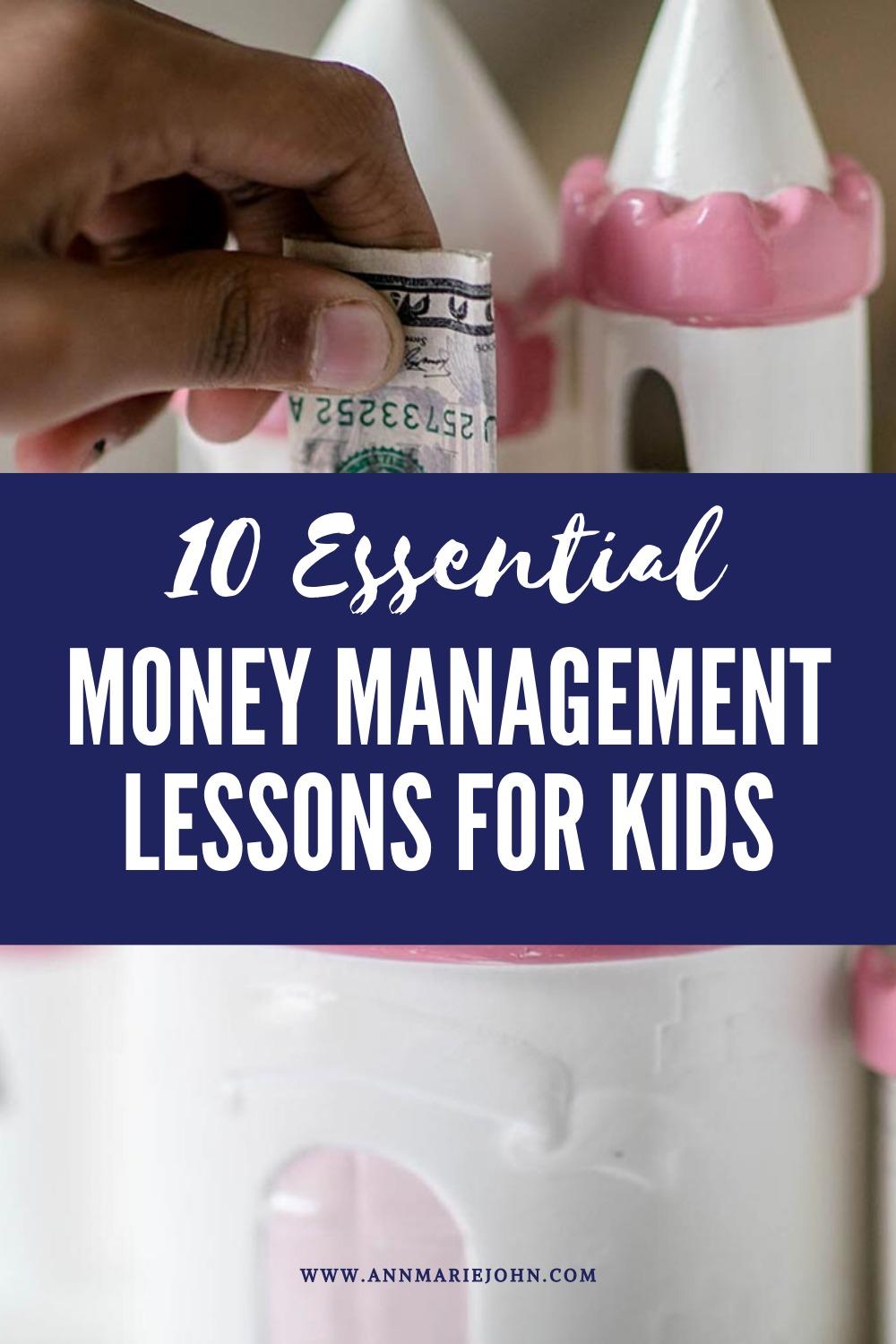
Sooner or later, you will have to teach your children how to be financially responsible. After all, money management is something that they’re not going to learn in school.
You’re their only hope to know a thing or two about financial terms for kids. Financial literacy at a young age can serve them well as they enter adulthood.
For ideas on where to start, here are some suggestions for money management lessons.


1. Working Hard for the Money
ATMs don’t produce money like many very young children might think. It’s a product of hard work, and that’s something you must impress upon them. Eventually, they’ll see the value of money once they earn an allowance for doing chores around the house.
2. The Importance of Saving
Paying kids for chores they complete is a wonderful opportunity to teach them the wonders of saving up. Tell them how setting aside some or all of their money can benefit them. Help them along by providing piggy banks for the very young ones and opening bank accounts for the older children.
3. The Difference Between Wants and Needs
It’s perfectly normal for kids—adults even—to blow whatever money they earn on the things they want like video games or the latest signature kicks. Explain to them the difference between wants and needs, and teach them about the importance of prioritizing the latter. They’re bound to become better financial decision-makers once they learn how to make priorities.

4. How to Create and Live Within Budgets
Kids have to learn budgeting basics, so they don’t run out of money long before their next allowance. Budgeting and working around it is a skill that will serve your kids well when they become adults.
5. Tracking Expenses
It’s not uncommon for kids who earn money to spend it and have no idea where it all went. They could sure use some lessons on monitoring their expenses. A budget sheet that lists down their expenses should help them see how they spend their money and pinpoint where they need to cut back.
6. What is Credit and How it Works
Our kids will see that we use our credit cards all the time, and they’ll be naturally curious about it. Talking to them about credit and how it works can help make them familiar with the concept. Tell them that credit can both be good and bad, so they’ll enter with wide eyes open the adult world that runs on it.
7. Comparison Shopping
Kids need to be familiar with the idea of comparing brands and prices when shopping. Having a clear grasp of the concept of comparison shopping gives them the ability to make smart decisions when making their purchases as they grow older.

8. Delayed Gratification
Delayed gratification may sound like a concept that’s a little too fancy for kids, but it’s vital that they learn about it at a young age. Being kids, they typically want to get what they want instantly, and they would be at a disadvantage if they grow up thinking it’s okay. Teaching them to delay gratification will help them develop patience, and be able to see that we all must make priorities.
9. Making Investments
There is nothing wrong with teaching kids about investments and how they work. Sure, they might be too young to comprehend the world of investing completely, but a little introduction to the idea that they can make their money grow wouldn’t hurt. Show them stock certificates or any documentary proof of investments you might have to make them even more curious.
10. Giving Back to the Community
It’s great for kids to learn all about money, but it’s even better for them to learn how to share. You wouldn’t want your kids to grow up greedy, so while you teach them about acquiring money and managing it, instill in them the importance of helping other people as well.




